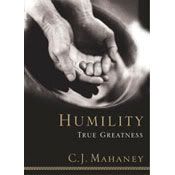Anti-"Lordship Salvation" Teachers: On the Side of the Reformers? Not hardly.
Background of the Lordship salvation controversy
For those readers blissfully ignorant of the Lordship salvation controversy, it all began when certain false teachers bucked 2000 years of Christian gospel preaching- preaching established by Jesus Himself from the outset of His ministry when He said, The time is fulfilled, and the kingdom of God is at hand; repent and believe in the gospel (Mark 1:15 ESV)- and began to assert that repentance is not necessary for salvation and, furthermore, justification is not necessarily followed by sanctification.
Consider the following quote from Zane Hodges' book Absolutely Free!
I have a friend, and more than a friend, a man who labored with me side by side in the ministry of God´s Word in the little group that has become __________ Bible chapel and this friend has fallen away from the Christian faith. He graduated from Bob Jones University and from Dallas Theological Seminary. And about the time when he and his wife left Dallas his wife contracted a very serious illness which over the years got progressively worse until she was reduced to being a complete invalid, and after the death of his wife I visited my friend (who now lives in the Midwest and who teaches Ancient History in a secular university). And as we sat in the living room together, face to face, he told me very frankly but graciously THAT HE NO LONGER CLAIMED TO BE A CHRISTIAN AT ALL, THAT HE NO LONGER BELIEVED THE THINGS THAT HE ONCE PREACHED AND TAUGHT, and the situation was even worse than he described because I heard through others that in the classroom on the university campus he often mocked and ridiculed the Christian faith. As I sat in that living room I was very painfully aware that it was impossible for me to talk that man into changing his mind.
What is surprising about the above quote is that Hodges believed that there was no question that his friend was yet a Christian, even while his friend openly "mocked and ridiculed" the Christian faith. According to this view we should never question anyone's salvation if they have ever made a profession of faith. This idea contradicts many Bible texts, including virtually all of 1 John: for example, 1 John 2:19: "They went out from us, but they were not of us; for if they had been of us, they would have continued with us. But they went out, that it might become plain that they all are not of us" (ESV). In contrast to this false teaching, faithful preachers of the gospel began to be labeled as those proclaiming "Lordship salvation"- teaching submission to the Lord Jesus is part and parcel with the gospel- though "Lordship salvation" is nothing other than the Good News of reconciliation to God through the Person and work of Christ (see 2 Corinthians 5:16-21).
The (apparent) conclusion to the Lordship salvation controversy
In light of the false teaching from those holding to the anti-"Lordship salvation" position, Pastor John MacArthur of Grace Community Church wrote The Gospel According to Jesus and The Gospel According to the Apostles. A few years later, MacArthur wrote Hard to Believe, a book on Christian faith and discipleship that effectively dealt with shallow gospel preaching: preaching that is often similar to the anti-"Lordship salvation" position. Soundly defeated, the anti-"Lordship salvation" advocates disappeared, never to be heard from again.
Or so I thought.
They're back.
What I didn't realize was the fact that, basically, false teachers are like B-movie horror villains. Just when you think they're vanquished, they come back for a "final scare." So one day I was reading the blog of Phil Johnson, an elder at Grace Community Church and friend of John MacArthur, when I noticed one commenter using the cover of Zane Hodges' Absolutely Free as his icon. When I saw this, I actually laughed out loud, certain that the commenter had a great sense of humor. I thought, "Maybe I should change my icon to the cover of Dave Hunt's What Love Is This? for today." I honestly continued to think that the commenter was being facetious, even after reading 2 or 3 of his comments, until I checked his blog. Then it dawned on me- "This guy is actually a Zane Hodges disciple!" Imagine my confused shock at this discovery. An actual living follower of the anti-"Lordship salvation" heresy. To me, this was like finding someone who claimed to be a Marcionite [even as I type this, I am concerned that someone will comment on my blog claiming Marcion as representative of biblical Christianity]. After it came to light that a small but painfully 'vocal' group of anti-"Lordship salvation" advocates were peddling their old defeated ideas all over cyberspace, Christians have worked to demonstrate, yet again, the repeated errors of this heresy.
Anti-"Lordship salvation" teachers' appeal to the Reformers
Not wanting to appear novel, and thus alone against the stream of Christian history, anti-"Lordship salvation" teachers (for lack of a better term) attempt to gain credibility by claiming that the doctrine of justification by faith alone, as taught by the leaders of the Protestant Reformation, supports the anti-"Lordship salvation" view, and they will often quote the Reformers to this end. They like to quote the Reformers because leaders like Luther and Calvin- in combating the Roman Catholic system that claimed that faith plus works such as sacramental penance yields justification- were often much more careful than today's theologians in distinguishing faith from repentance. Anti-"Lordship salvation" teachers capitalize upon this distiction and then introduce an idea unknown to the Reformers- namely- that faith and repentance are not only distinguishable, but they can also be separated. As Bible teacher R.C. Sproul notes:
Hodges appeals to [such passages as] Calvin's rejection of the identification of repentance and faith, citing Calvin's comment: "For to include faith in repentance, is repugnant to what Paul says in Acts [20:21]... where he mentions faith and repentance as two things totally distinct."
Calvin indeed distinguishes between faith and repentance and argues strenuously that faith is not produced by repentance. Yet Calvin will not separate or disconnect repentance from faith.
Calvin says: "That repentance not only follows faith, but is produced by it, ought to be without controversy. ... It is certain that no man can embrace the grace of the gospel without betaking himself from the errors of his former life into the right path and making it his whole study to practice repentance" (Calvin, Institutes of the Christian Religion, 1:509-10, 3.3.1).
Earlier Calvin says: "The sum of the gospel is, not without good reason, made to consist in repentance and forgiveness of sins; and, therefore, where these two heads are omitted, any discussion concerning faith will be meager and defective, and indeed almost useless" (Ibid, 1:509, 3.3.1).
That Calvin was jealous to distinguish faith and repentance without separating them is made crystal clear when he writes: "Can true repentance exist without faith? By no means. But although they cannot be separated, they ought to be distinguished. As there is no faith without hope, and yet faith and hope are different, so repentance and faith, though constantly linked together are only to be united, not confounded. I am not unaware that under the term repentance is comprehended the whole work of turning to God, of which not the least important part is faith..." (Ibid, 1:512, 3.3.5).
Calvin will not allow for a repentance without faith. Neither will he allow for a faith without repentance.
[R.C. Sproul, Faith Alone: The Evangelical Doctrine of Justification (Grand Rapids, Mich: Baker Books, 1995. 169-170]
A simple study into Martin Luther likewise reveals quotes such as the following from his 95 Theses:
1. Our Lord and Master Jesus Christ, when He said Poenitentiam agite, willed that the whole life of believers should be repentance.
2. This word cannot be understood to mean sacramental penance, i.e., confession and satisfaction, which is administered by the priests.
3. Yet it means not inward repentance only; nay, there is no inward repentance which does not outwardly work divers mortifications of the flesh.
4. The penalty [of sin], therefore, continues so long as hatred of self continues; for this is the true inward repentance, and continues until our entrance into the kingdom of heaven.
And in Martin Luther's definition of faith, found in his Introduction to Romans, a careful distinction is made between faith and good works of repentance, yet Luther asserts:
Faith cannot help doing good works constantly.
The Reformers clearly believed that repentance necessarily flows from faith even as faith necessarily flows from regeneration (another doctrine the anti-"Lordship salvation" group denies).
In light of the above information, why do the anti-"Lordship salvation" teachers so often quote the Reformers? Certainly, one reason is due to ignorance on the part of most Christians concerning what the Reformers taught about justification by faith alone. The anti-"Lordship salvation" proponents will give select quotes from Luther, Calvin, and others, but when passages such as those above are mentioned, they are quick to charge the Reformers with self-contradiction in their teaching on faith. (I've never seen anti-"Lordship salvation" teachers charge the Reformers with being self-contradictory before they begin quoting them, which leads me to conclude that -big surprise!- false teachers who do not believe in the necessity of submitting to the Lord are sometimes less than honest.) A thorough reading of the Reformers, however, reveals that they are not self-contradictory in their teachings on faith- they just do not teach what anti-"Lordship salvation" proponents imagine them to say. The Reformation understanding of Scripture is that justification is by faith alone, but the faith that justifies never remains alone: instead, this faith is a gift of God, having such a quality that it inevitably yields good works.
And this is exactly what the Apostle teaches in Ephesians 2:8-10,
For by grace you are saved through faith, and this is not from yourselves; it is God's gift: not from works, so that no one can boast. For we are His making, created in Christ Jesus for good works, which God prepared ahead of time so that we should walk in them. (HCSB)
Labels: apologetics, Reformation Theology























